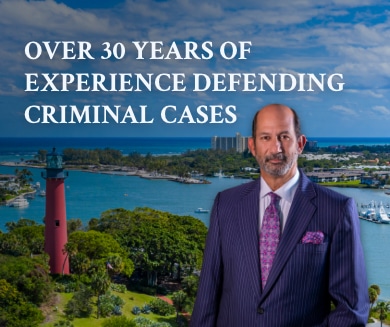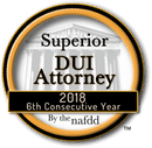Legally Reviewed By:
Brian P. Gabriel, Esquire
Bribery Charges in West Palm Beach
Public officials often take the spotlight in bribery cases because they betray the trust of their constituents when they engage in corruption. A mayor who accepts a check from a contractor for choosing their development plan over another engages in bribery. A CEO who pays a government official to look the other way while his company illegally dumps waste entices the official to a bribe, and may be charged with bribery alongside the official upon the completion of an investigation.
Reasons for Bribery
Bribery is the act of offering or receiving money or other valuables with the intent to sway an official’s conduct. All parties involved in the commission of bribery may face criminal charges. The purpose of bribery is usually to:
- Influence the official’s actions in his role
- Induce the official to do something illegal or allow someone to do something illegal
- Push the official to take an action that would violate the law or contradict his official duties
Anyone can engage in bribery. A simple scenario may include one in which a sports coach offers a referee money in exchange for ignoring when his players makes a foul. Most of the time, bribery involves people in public positions of power. Many bribery crimes are thus federal crimes which require the experience of a federal defense lawyer.
Federal Bribery Crimes
The General Federal Bribery Statute makes several acts of bribery illegal, which adds to the complexity of these cases. Bribery commonly involves public officials, peace officers, judges, jurors, bank and sports officials. One can face harsh penalties that include steep fines for committing bribery. These penalties differ based on who was involved in the illegal act. Penalties for bribing bank officials, for example, can be much stiffer than those for bribing sports officials. Top legal counsel is strongly suggested should you face charges.
Bribery of Public Officials
“Public officials” under federal law are generally elected members of Congress and other legislative bodies, including after they are elected or appointed and after they take office. A public official may also include employees, agents, and officers who may act on behalf of the government, as well as jurors serving in a civil or criminal trial. The federal bribery statute bars individuals, businesses, and others from giving, offering, or promising anything of value to a public official or a person who is awaiting final approval to a government position, if the purpose of the gift is to influence his or her decision-making when executing official duties.
Bribery of Jurors and Witnesses
Offering valuables to jurors or witnesses while intending to influence their sworn testimony before a court is considered bribery under federal and state law. This applies to all jurors and witnesses serving on civil and criminal trials. Additionally, witnesses and jurors may not seek or demand anything of value in exchange for a different testimony or deliberation.
Commercial Bribery
Commercial bribery is a third-degree felony offense in Florida in which something of value is offered to an employee of a business in exchange for a benefit. A common example of bribery in the corporate world is a kickback. Penalties for commercial bribery may include a five-year prison sentence and a fine of up to $5,000. Individuals who may be charged with commercial bribery include:
- Agents or employees of an organization
- A trustee, guardian, or other fiduciary
- A lawyer, doctor, accountant, or appraiser
- A professional adviser
- An officer, director, manager, or partner of an organization
- An arbitrator or other neutral third party
Whether you are a public official or professional, a bribery accusation can call your reputation into question. A conviction could be the end of your career as you know it. The sooner you act to acquire a thorough defense, the better your chance of obtaining a positive resolution to your case will be.
Penalties for Bribery Involving Public Officials
Bribery involving a public official is a second-degree felony in the state of Florida punishable by up to:
- 15 years of prison
- A fine of up to $10,000
Defenses to bribery do not include the fact that the official did not take the offered bribe or solicit it. Neither is the fact that the official was not in office at the time or did not have the power to perform the solicited act. If the official did solicit a bribe, it is no defense that the person solicited did not give or offer one.
Bribery Defense Lawyer with More than 30 years of Experience
It’s imperative to work with an experienced bribery defense attorney the moment you are named in an investigation of suspected corruption. Attorney Brian Gabriel of The Law Office of Gabriel & Gabriel has represented individuals accused of bribery in West Palm Beach and surrounding areas for more than 30 years. You can count on him to take a competent approach to your case. Call 561-622-5575 or complete a contact form for a free consultation.










